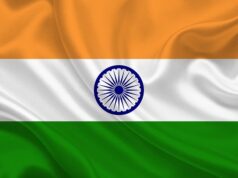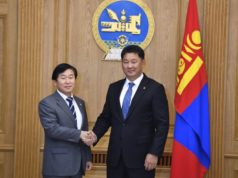Vietnamese coffee and Vietnamese fare are inspired by tourists from all over the world, but Starbucks and McDonald’s restaurants have become inexplicably popular in various Vietnamese cities.
Western tourists rarely eat inside McDonald’s or drink coffee inside Starbucks. They prefer local coffee and food, but the Vietnamese elite – especially young people – prefer American lifestyle with its food, coffee and language.
The vanguard of the American youth has caused great bitterness among the generation of parents who fought a vicious war against the American presence that ended in forcing the United States to withdraw in 1975.
Over the past decades, Vietnam and the United States have forged hostility and war. Yet Hanoi has managed to normalize its relations with Washington, but has brought together broad economic, political and military ties.
Losses in millions
The United States lost more than 58,000 troops in Vietnam, and more than 150,000 were injured. On the Vietnamese side, two million civilians and one million soldiers were killed. In addition to the effects of the widespread use of landmines and radioactive and chemical materials, which have remained in effect for years.
Initially, Washington supported the French war effort, then moved to military support through more than 17,000 military advisers, and by 1969 it had about 600,000 troops fighting there.
According to a study by Harvard University, the war left 10 million Vietnamese refugees, 1 million widows, 880,000 orphaned children, 3 million unemployed, and inflation at the end of the fighting was 900%.
Washington has pledged $ 3.5 billion to compensate for its destruction of Vietnam’s infrastructure and $ 2 billion in compensation for the use of chemicals that have damaged 2 million Vietnamese. But Washington has also decided to boycott Vietnam and not deal with its communist regime. But the two countries began slow normalization steps between the mid-1990s and today have strong ties.
The Paris Agreement, signed by the Vietnamese communists with Washington in 1975, ended one of the fiercest wars of the 20th century. The United States has taken 20 years to lift its sanctions and boycotts imposed on Vietnam after the war, a new history in the two countries‘ relations.
And moved the relations to become a comprehensive partnership based on the dimension of commercial economic and military strategic. The rise and continuation of China’s economic and military power and influence, especially in East and South Asia, has been an auxiliary element, and perhaps a catalyst for this partnership.
The Chinese threat
Washington and Hanoi share a common sense of growing Chinese threat, especially on the maritime military side as Beijing expands into the South China Sea, posing a direct threat to Vietnamese sovereignty. The year 2014 marked a major Chinese escalation by setting up an oil extraction platform in an area considered by Hanoi an economic zone under its sovereignty.
The majority of the Vietnamese people look positively at President Donald Trump, according to a poll conducted by the Pew Research Center in 2017 that 58% of Vietnamese have a high degree of confidence in the US president. The survey also found that 76% of Vietnamese had a positive opinion in the United States, and the percentage rose to 87% among young Vietnamese from 18 to 29 years.
At the same time, Hanoi is dealing with the equation of its relations with Beijing and Washington very cautiously, as it does not want to provoke China, as the Vietnamese researcher Kong Nigian in the Saigon Center for International Studies at Ho Chi Minh University, so emphasizes in all cases its neutral position known as the three deities: Not to the military alliance, nor to stand with any party involved in military conflicts, nor to establish a military base in Vietnamese territory or water.
Hanoi and Washington are also developing a constantly evolving military relationship. In a historic event, the US aircraft carrier Carl Vinson visited the Dan Ang Port in March 2018, the carrier from which military aircraft were launched to hit Vietnamese targets during the 1975 war.
As the conflict with China’s strong neighbor over sovereign rights and maritime borders continues in the South China Sea, Vietnam’s presence in the United States adds more confidence to Hanoi’s position.
A number of Vietnamese citizens spoke to Al-Jazeera Net in a positive way about Trump, who they see as „a national leader who faces China commercially and has solid positions against the conflict in the South China Sea.“ However, the complexities of Vietnam’s foreign relations hinder its relationship with Washington. For example, Russia is the main source of arming the Vietnamese army, which hampers the development of its military relationship with the United States.
Broad talks
Vietnam also believes in the importance of its relationship with the Chinese neighbor. Despite disagreements over the South China Sea issues, the two countries have tried to resolve disputes by broad talks between the two ruling parties and defense ministers.
„The United States is a foreign country, so Hanoi is trying to capitalize on Washington’s interest in the region, without a reason for growing differences with Washington,“ a former Vietnamese official told Al Jazeera.net.
Hanoi and Washington signed a bilateral trade agreement in 2000 that allowed Vietnam to enter the world’s largest market after a significant reduction in tariffs. Washington also helped facilitate Vietnam’s entry into the World Trade Organization in 2007, allowing it to become a highly integrated player in the global economy. Vietnam represented a good alternative to foreign investment, especially manufacturing, where labor costs are lower than countries such as China, Indonesia and Malaysia. Many US companies preferred to move to Vietnam to reduce their dependence on China.
Vietnam has followed policies of economic openness and attracted foreign investment in recent years, making it one of the fastest growing global economic growth.
Today, Hanoi brings warm relations with Washington, which has led to the United States becoming Vietnam’s largest trading partner after economic sanctions were lifted in 1995. After Hanoi became a center of hostility and suspicion for all Americans, Vietnam has become a tourist center for Americans, an investment attraction and cultural exchange. .



